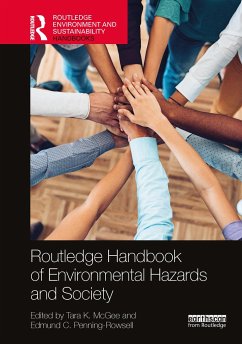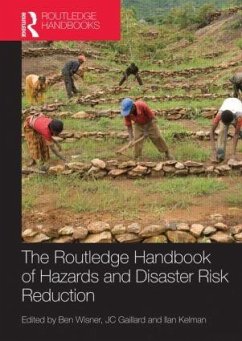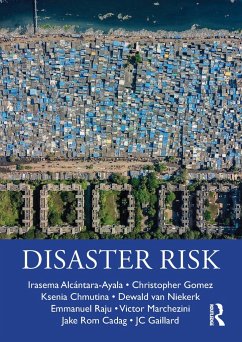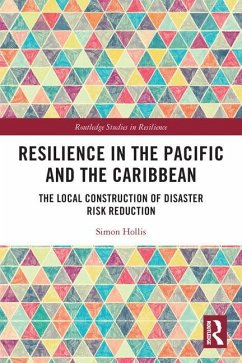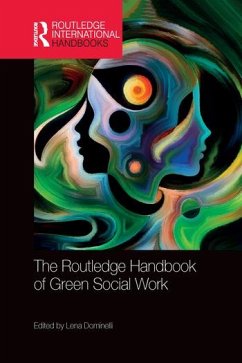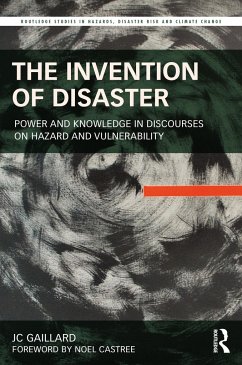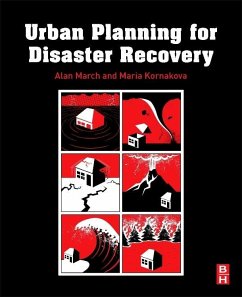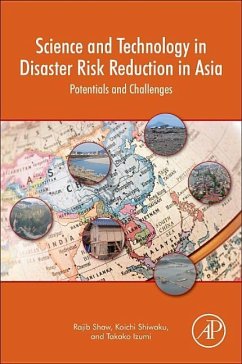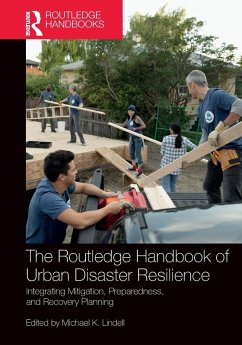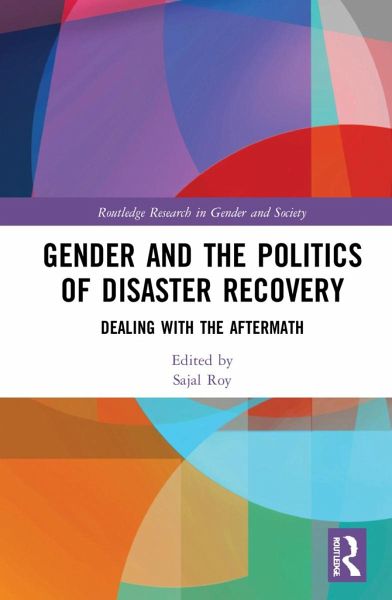
Gender and the Politics of Disaster Recovery
Dealing with the Aftermath
Herausgegeben: Roy, Sajal
Versandkostenfrei!
Versandfertig in 6-10 Tagen
154,99 €
inkl. MwSt.

PAYBACK Punkte
77 °P sammeln!
Drawing a transdisciplinary perspective, this book investigates the ways in which gender intersect with rebuilding and post-disaster recovery process. It shows how climate-induced disasters as well as the recent COVID-19 pandemic have impacted human lives and livelihoods across various global socioeconomic conditions, sociopolitical conditions, and the gendered relationships from the Global South perspective.From the real experiences of the people vulnerable to disasters, this book identifies the strengths and weaknesses of the post-disaster management in different contexts. The varied roles a...
Drawing a transdisciplinary perspective, this book investigates the ways in which gender intersect with rebuilding and post-disaster recovery process. It shows how climate-induced disasters as well as the recent COVID-19 pandemic have impacted human lives and livelihoods across various global socioeconomic conditions, sociopolitical conditions, and the gendered relationships from the Global South perspective.
From the real experiences of the people vulnerable to disasters, this book identifies the strengths and weaknesses of the post-disaster management in different contexts. The varied roles and responsibilities of men and women in different countries are also examined. It is often hard to understand how local and global politics are involved in humanitarian aid. This book also shows how lower-income and under-privileged communities are deprived of their right to access relief and rehabilitation due to political involvement.
This text also highlights effective methods of policy implementation for achieving sustainable recovery from these humanitarian crises. It will assist strategy planners and policymakers to focus on gender-based barriers and political hindrances as well as geological and socioeconomic factors in planning inclusive post-disaster activities. The book will be of interest to researchers, postgraduate students and scholars in the fields of Sociology, Social Anthropology, Development Studies, Gender and Cultural Studies, Area Studies, Human Geography, Disaster Management, Forestry and Environmental Science.
From the real experiences of the people vulnerable to disasters, this book identifies the strengths and weaknesses of the post-disaster management in different contexts. The varied roles and responsibilities of men and women in different countries are also examined. It is often hard to understand how local and global politics are involved in humanitarian aid. This book also shows how lower-income and under-privileged communities are deprived of their right to access relief and rehabilitation due to political involvement.
This text also highlights effective methods of policy implementation for achieving sustainable recovery from these humanitarian crises. It will assist strategy planners and policymakers to focus on gender-based barriers and political hindrances as well as geological and socioeconomic factors in planning inclusive post-disaster activities. The book will be of interest to researchers, postgraduate students and scholars in the fields of Sociology, Social Anthropology, Development Studies, Gender and Cultural Studies, Area Studies, Human Geography, Disaster Management, Forestry and Environmental Science.



